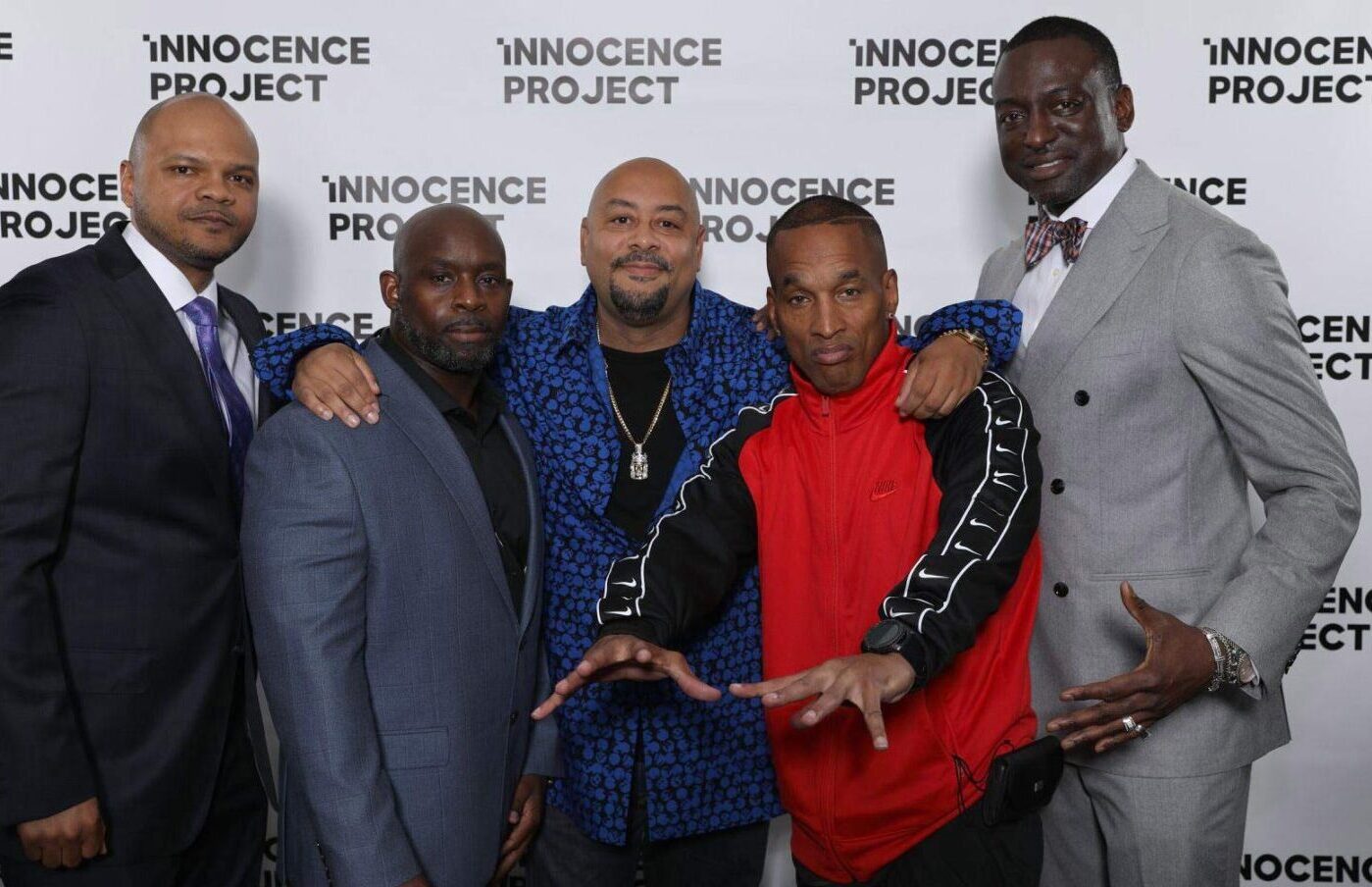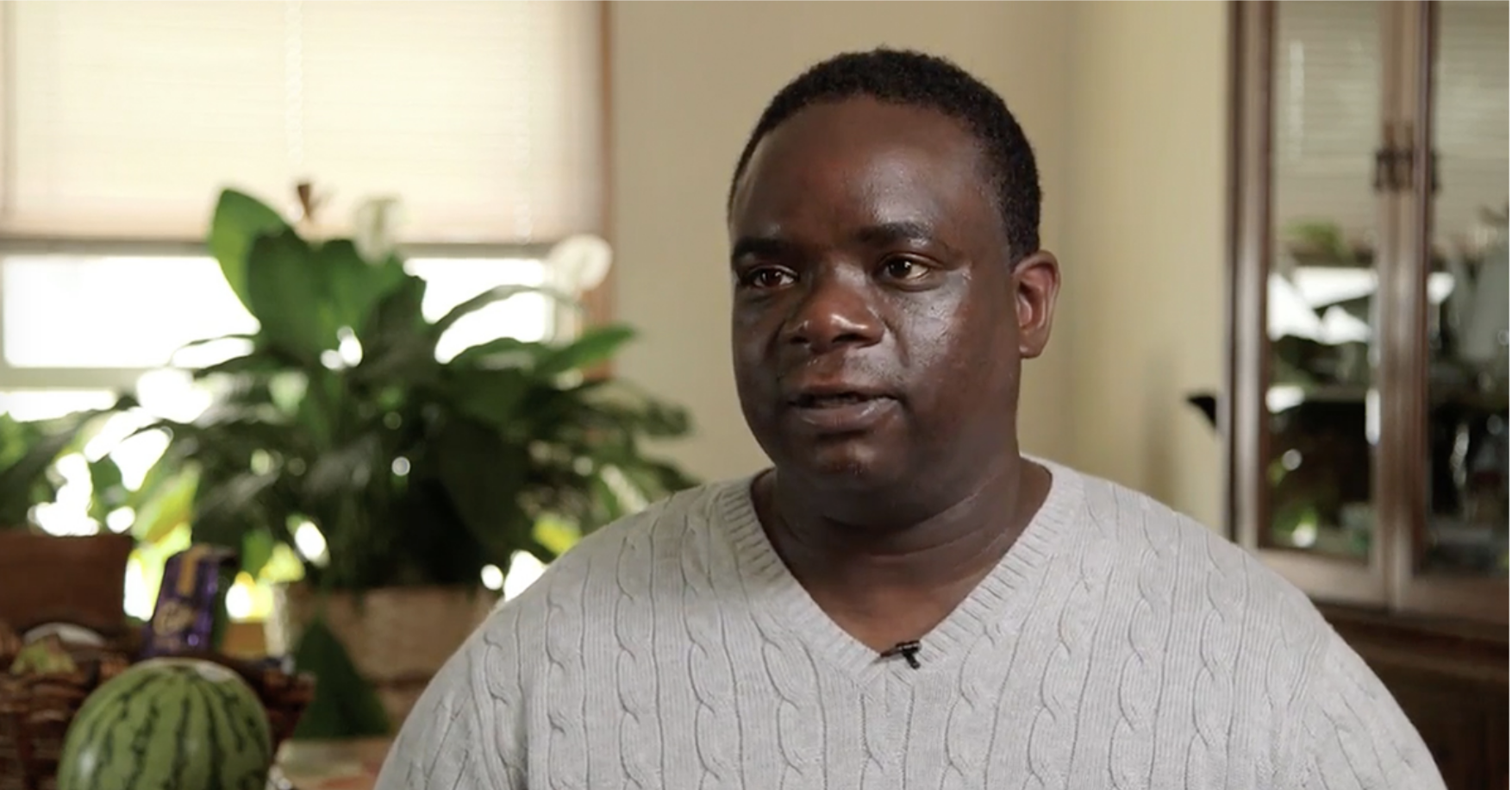Dear Friend,
We launch into 2023, with big, ambitious plans for the coming year, buoyed by last year’s successes — including six exonerations, two vacated death sentences, over 10 policy wins, a first-of-its-kind research convening and so much more.
While we continue our core exoneration and policy work, and deepen our understanding of the role of racial bias in wrongful conviction, we are warily observing a dangerous trend that threatens to undermine our country’s progress toward a truly fair and equitable criminal legal system. Increasingly, we’re seeing policymakers ignoring the lessons of the past and embracing the tough-on-crime rhetoric that drove decades of mass incarceration and countless wrongful convictions.
We must never forget how incendiary language and stiff criminal codes led to an unprecedented rise in incarceration — and wrongful conviction — in the ‘80s and ‘90s, as well as a proliferation of unjust law enforcement practices targeting Black, brown, and poor communities that transformed a generation. Today, we are still working to undo these harms, which have come at a high and unnecessary cost — almost $182 billion every year, according to one report — to the government and impacted families.
Yet, we’re still seeing a renewed emphasis on tough-on-crime policies and rhetoric, despite the fact that throughout the country violent crimes, including murders, were down in 2022. For example, since taking office last year, New York City Mayor Eric Adams has embraced tough-on-crime policies, arguing that judges be allowed to consider a person’s “dangerousness” when determining whether bail should be granted. And in New Jersey, we’re seeing an influx of proposed tough-on-crime bills.
It is not lost on us that the recent tough-on-crime talk and policy proposals come on the heels of significant reforms, which include amendments to New York’s cash bail system and the election of progressive prosecutors across the country. In the bigger picture, this chatter and these proposals follow the emergence of the Black Lives Matter movement, the murder of George Floyd, and the broad calls for racial justice and criminal legal system reform.
This phenomenon of oscillating between progress and retrenchment is, of course, not new. Instead, it is a tragic hallmark of our country’s history.
After the Civil War and Reconstruction, we saw the emergence of Black Codes, convict leasing, and lynchings. After the Civil Rights Movement of the 1960s, the government passed the Omnibus Crime Control and Safe Streets Act, which gave significant funding and power to law enforcement. As Black incomes soared in the 1990s, President Clinton passed one of the most draconian crime bills in history and the New York City Police Department implemented a stop-and-frisk policy that — at its height — resulted in almost 700,000 innocent Black and Latinx people being stopped and searched on public streets. Less than 10% of those stops produced arrests or seizures of guns, drugs, or contraband. And despite the creation of President Obama’s 21st Century Policing Task Force that, amongst other things, called for greater regulation of surveillance technologies, we have seen an increased use of these unreliable and unvalidated technologies, like facial recognition technology, in already overpoliced communities of color with potentially damaging consequences.
The Rush to Convict and Imprison
The case of the Exonerated Five — who celebrated the 20th year of their exoneration last December — powerfully demonstrates how tough-on-crime approaches can and do ensnare the innocent. The Five were convicted in the midst of a wave of such policies, and just about every factor that we know contributes to wrongful convictions — racism, police and prosecutorial misconduct, the use of lies and deception in the interrogations of minors, false confessions, and a trial by media — played a role.
At the time of their prosecution, the War on Drugs and the juvenile superpredator myth drove a perception of lawlessness and unchecked danger to which policymakers responded with a bevy of tough-on-crime rhetoric, policies, and practices.

Kevin Richardson, Antron McCray, Raymond Santana, Korey Wise, and Yusef Salaam at the Innocence Project gala in May 2019. (Image: Matthew Adam Photography)
It was in this overheated climate that Kevin Richardson, Raymond Santana, Yusef Salaam, Korey Wise and Antron McCray — all of whom were teenagers — faced police who, in an overzealous attempt to secure confessions, made false statements which unfairly pressured the teens to falsely implicate themselves. This tactic — which remains legal in most states — is known to produce false confessions, especially among children. Indeed, 27% of the Innocence Project’s 241 exonerations and releases, and 11% of the cases recorded by the National Registry of Exonerations since 1989, were the product of such false confessions. Through our advocacy, five states have now outlawed the use of deception in the interrogation of juveniles. Ultimately, as you know, the Five were wrongfully convicted and sentenced to serve between five and 15 years in prison.
In 2023, we will be supporting legislation in over 10 states to stop deceptive interrogation tactics. And we will continue to push to ensure that all 50 states record all police interrogations as a means of improving transparency and creating an indisputable account of the proceedings. Thirty states are already doing this, so we’re over halfway there.
An Overloaded System and the Guilty Plea Problem
Tough-on-crime policies and the aggressive, high-volume police and prosecution practices they demand also obstruct true justice and drive wrongful convictions by backlogging courts, overwhelming public defenders, holding people in jail for months before trial, and incentivizing guilty pleas — whether accurate or not.
In the U.S., 95% of felony convictions are secured through guilty pleas. And according to the National Registry of Exonerations, 25.6% of the 3,343 exonerations in the United States since 1989 involved a guilty plea.
The case of exoneree and Innocence Project Re-entry Coach Rodney Roberts is a perfect illustration. In 1986, Mr. Roberts was arrested in New Jersey after getting into a fight. After several days in jail, he was blindsided when he learned that he was being charged with the kidnapping and rape of a 17-year-old girl. His public defender told him he would face life in prison if he went to trial, so Mr. Roberts pleaded guilty, believing that doing so was his only chance to return home to his family and, in his words, “salvage my life.” He spent seven years behind bars and another 10 years fighting for his innocence before DNA testing helped to exonerate him.

Exoneree and Innocence Project Re-entry Coach Rodney Roberts shares his experience with wrongful conviction in a video for GuiltyPleaProblem.org. (Image: Innocence Project)
In an effort to counter the guilty plea phenomena, the Innocence Project is working with a coalition of organizations, including the American Civil Liberties Union, the NAACP Legal Defense & Educational Fund, Inc., the National Association of Criminal Defense Lawyers and many more, to end the trial penalty — the substantial difference between the sentence offered in a plea deal prior to trial versus the sentence a person may receive after trial. In New York, we joined the New York State Task Force on the trial penalty and offered several reform recommendations, including one that would eliminate mandatory minimums and another that would lift the ban on people who plead guilty — but do not have the benefit of DNA in their cases — from seeking relief in court post-conviction. All of our policy recommendations are serving, and intend to serve, as the foundation for legislative proposals.
Advancing a Path for Justice
For all of these reasons, policymakers must learn from history and avoid rolling back progress — as this country has so often done — in the fight for a more equitable society.
As an organization guided by science, we know there is more to be learned and understood about wrongful conviction, particularly amid heightened concerns about public safety. We will continue to collaborate with researchers on the cutting edge of their disciplines to better inform our work in ensuring that our criminal legal system protects all people.
It’s this work and more that energizes us everyday at the Innocence Project. I am deeply grateful for your support, advocacy, and commitment to changing the system for the better. Together, we can drive the change we want and need.
With gratitude,

Christina Swarns, Executive Director Innocence Project
The post ‘Tough-on-Crime’ Policies Are at Odds With the Presumption of Innocence appeared first on Innocence Project.
This post was originally published on Innocence Project.
